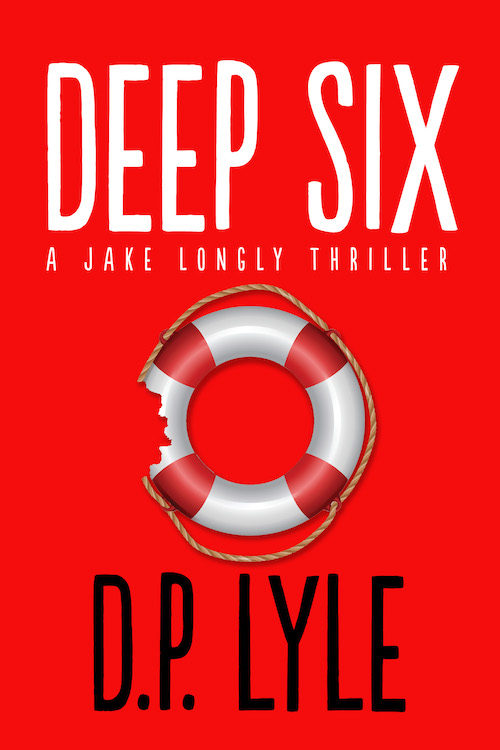Every author has been asked: Where do you get your ideas? The short answer is: Everywhere. Something you see or read germinates an idea and a story unfolds. Sometimes the story comes together quickly, but most often weeks of building mental scenes and snippets of dialog, setting, and action must be waded through before pen meets paper.
An overheard conversation might be the spark. Or a couple talking/arguing/laughing at a nearby restaurant table. Maybe an odd character strolling down the street. Perhaps an idea simply pops into your head from wherever those thoughts arise.
Okay, so you have an idea. Now what? An idea isn’t a story. Ideas are a dime a dozen. They are literally everywhere. The key is to find an idea that can stand up through a 100,000-word manuscript. No small trick.
To do this, the original idea must be refined and fleshed out. An idea can become a scene, but to be a full-length novel it must evolve and expand. It must become a premise, or what many call “The Central Story Question.” It’s what the story is really about.
To become a premise, the original idea must ultimately lead to the question: What if?
What if this happened? What if that person did this? What if that dude in the shabby clothes was actually a rogue undercover agent with a deadly agenda? What if the restaurant couple was planning a murder? What if that briefcase contained state secrets? Or an explosive device? Or a deadly virus?
From those two words–What if?–stories arise.
The power of your story’s What If? can’t be overestimated. If it is done correctly and not lost in the writing. A good What if? states the main character, the situation, the stakes, and, most importantly, the central story question.
It is the answering of this question that is the story.
Okay, so our restaurant couple is planning a murder. Who, what, when, where, and, most importantly, why? It’s always the why that makes a great story. Is it to get out of a messy marriage and save all that alimony money, or to cash in that million-dollar insurance policy, or to cover an embezzlement from a company they work for, or to seek revenge for some act? Even though the original idea was a couple planning a murder, each of these scenarios generates a different story. Each will lead your sleuth, who must solve the murder, into a different world.
What if a forensic evidence and criminal behavior expert must track down a seemingly average couple who murdered the killer of their only child, dumped their entire lives, and disappeared?
This is the What If? for my third Dub Walker thriller, RUN TO GROUND. See how it introduces the protagonist and states the major story question? Will Dub be able to find the couple and what will happen if he does?
The What If? should be stated in about 25 words or less. The one above is a little long but it works. Because the What If? is brief, it’s often called the elevator pitch or the agent pitch. It communicates your story in the most efficient terms. We’ve all heard writers respond when asked what their story is about by saying things like, “Well, there’s this guy who lives on an island. And he hates the water. And a big shark is killing people and this is threatening to shut down the town’s beaches on a holiday weekend. And then there’s this other guy who is a shark expert and he has a really cool boat. Oh, I forgot, the first guy is the chief of police.” Yawn.
What if a hydrophobic, island-community police chief must go out on the water to kill a predatory shark to save the town’s summer economy and to prove his own self worth?
What if an FBI trainee must exchange personal information with a sadistic serial killer in order to track another serial killer and save a Senator’s daughter?
What if the youngest son of a mafia family takes revenge on the men who shot his father and becomes the new Godfather, losing his own soul in the process?
These are of course Jaws, Silence of the Lambs, and The Godfather, respectively. See how these What If?s reveal the protagonist and cleanly state the story premise? Read these books or watch the movies and you will see that each scene moves toward answering the story’s What If? Each of your scenes should, too. If not, consider cutting, or at least reworking, those that don’t.
Many authors consume weeks creating the What If? for their story. Constantly refining it, making it more on point. You should, too. It’s that important. It concisely states the Central Story Question.
Here’s a tip: When your What If? is completed to your satisfaction, print it out and tape it to your computer or the front of your writing pad so you will see it every time you sit down to write. Before writing each scene, read your What If? and ask yourself, “Does this scene help answer the Central Story Question?” If you do this, you will never lose sight of what your story is about. Particularly in the dreaded middle, where so many stories get lost in the jumble of character, and backstory, and cool dialog, and all the other stuff that goes into a manuscript. The What If? keeps you focused, and on track.
The What If? is essential for novel-length manuscripts, but it is also useful for short stories.
What if a good, God-fearing couple is threatened by the man that killed their only son, forcing them to plan the man’s murder and their own disappearance?
That’s the What If? that drove my short story, “EVEN STEVEN,” which appeared in the International Thriller Writer’s anthology THRILLER 3: LOVE IS MURDER.
But the “story” didn’t end there.
After “EVEN STEVEN” was completed, I sent it to my older sister, a retired school teacher and accomplished storyteller herself. She read it and then asked me: What happens next? My response was: What do you want to happen next? She laughed saying she wanted to make sure that I intended for the story to have an ambiguous ending. I did.
Then over the next few weeks, I asked myself: What does happen next? That of course generated the What If? that became RUN TO GROUND.
Do you see the difference between the What If? for “EVEN STEVEN” and the one for the RUN TO GROUND? The short story focused on the couple so they are the protagonists, while the novel focuses on the investigation with Dub Walker as the protagonist.
And from this What If? you can generate the jacket blurb for your novel.
RUN TO GROUND Jacket Blurb:
What would you do if someone brutally murdered your only child, got off on a technicality, serving only months for a minor infraction, and continually taunted and threatened you from behind bars? Could you hide your growing rage from family and friends? Could you gun the killer down? Could you change your ID and leave behind your entire life—family, friends, jobs, home—and disappear?
For Tim and Martha Foster the answer to each of these questions is yes.
This is the scenario that faces Dub Walker in RUN TO GROUND.
Excerpt from RUN TO GROUND:
“I can still smell him.” Martha Foster inhaled deeply and closed her eyes.
Tim stood just inside the doorway and looked down at his wife. She sat on the edge of their son’s bed, eyes moist, chin trembling, as were the fingers that clutched the navy blue Tommy Hilfiger sweatshirt to her chest. It had been Steven’s favorite. He had slept in it every night the first month until Martha finally pried it away long enough to run it through the wash.
Behind her, a dozen photos of Steven lay scattered across the blue comforter. A proud Steven in his first baseball uniform. A seven-year-old Steven, grinning, upper left front tooth missing, soft freckles over his nose, buzz-cut hair, a blue swimming ribbon dangling around his neck. A playful Steven, sitting next to Martha at the backyard picnic table, face screwed into a goofy expression, smoke from the Weber BBQ rising behind them. Tim remembered the day he snapped the picture. Labor Day weekend. Just six months before that day. He squeezed back his own tears and swallowed hard.
Martha shifted her weight and twisted toward the photos. She laid the sweatshirt aside and reached out, lightly touching an image of Steven’s face. The trembling of her delicate fingers increased. She said nothing for a moment and then, “I’m taking these.”
Tim walked to where she sat and pulled her to him, her cheek nestling against his chest, her tears soaking through his tee shirt. He kissed the top of her head.
“He’s gone,” Martha said. “Everything’s gone. Or will be.”
Tim smoothed her hair as details from a room frozen in time raced toward him. A Derek Jeter poster, a photo of Steven’s Little League team, and his Student-of-the-Month certificate hung on the wall above his small desk. A crooked-neck lamp spotlighted a history text, opened to the stern face of Thomas Jefferson. His baseball uniform draped over the chair back, sneakers haphazard on the floor. Exactly as it had been the day their lives jumped the track.
They had been through this dozens of times. What they could safely take. What must be abandoned? What could be traced back here? They had scrutinized everything they owned. Their marriage license, birth certificates, engraved wedding bands, the calligraphed family tree Martha had painstakingly drawn and framed, and boxes of family keepsakes. Any photo that showed their home, cars, neighbors, family, Steven’s friends, teammates, or school, had to be abandoned. As did Steven’s Little League uniform. Each of these could undo everything if seen by a curious eye.
Tim had always won these what-to-take-what-to-leave arguments, but now, with the end so close, he knew he could no longer resist her.


























Mary Lee Barton
June 12, 2017 at 6:24 pm
Thanks so much for this post, Doug! I’m a novice mystery writer, and I’ve used the “What if?” question to come up with plot ideas. However, it wasn’t until reading your article that I realized why my ideas stalled: I was putting the situation after “what if” rather than the main character. Your examples helped me see that this method focuses on character and conflict rather than plot. (If that makes sense.) Very helpful!
LikeLike
D.P. Lyle, MD
June 13, 2017 at 5:53 am
That’s great. So glad it helped.
LikeLike
jushaw
June 13, 2017 at 7:21 am
I am so happy you wrote this post! As a multi-published author, I still need these reminders–and your thought processes really help. Also, your newest book sounds terrific! I need to read the rest of it!
LikeLike
D.P. Lyle, MD
June 13, 2017 at 7:24 am
Glad it helped. And I hope you enjoy the book. It’s the third in my Dub Walker series.
LikeLike
Kathryn
June 25, 2017 at 9:06 am
This is brilliant advice for all kinds of writing, not just crime and mystery. Every attempt at every genre from HF to SF to steamy romances would benefit from such a clear statement of purpose and intent. Thanks!!
LikeLike